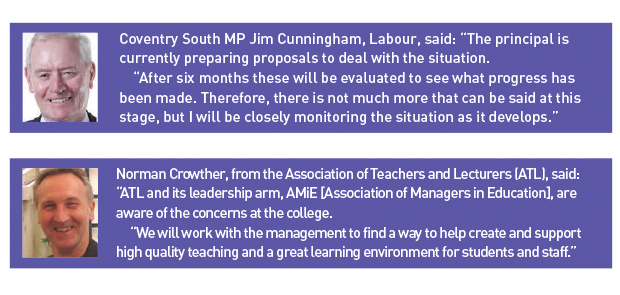The government’s plans for vocational education move the debate forward but more detailed discussions with employers, and FE and school sector representatives are vital, says Brian Lightman
After what has felt like an incredibly long wait, there is some sense of relief that the government has finally given an indication of its plans for vocational education with its announcement of a Technical Baccalaureate (Tech Bacc).
At a time when there has been so much emphasis on traditional academic study in policy circles and accountability measures, there is an urgent need for equal status to be given to high-quality vocational education. Employers are crying out for candidates with real potential to go into higher level apprenticeships or employment-based training that then lead into a range of careers in industry and commerce. In many cases the best preparation for these is highly valued and high status vocational courses.
However, the Tech Bacc does not address two major issues.
The first is the continuing misuse of the term ‘baccalaureate’. The simple fact is that Tech Bacc, like the Ebacc before it, is not a baccalaureate. It is a performance indicator based on courses that in large part have not yet been approved. And we all know too well what happens when the curriculum is driven by the accountability system as opposed to a coherent educational vision: it places the accountability cart before the educational horse.
Curriculum design focuses on ticking the box on the performance indicator as opposed to looking at the learning outcomes. We should be starting this process with a planned approach to the curriculum that integrates vocational and academic qualifications into a coherent educational vision.
The second issue is even more challenging, and at its heart is a cultural issue that our country has been deeply unsuccessful in addressing. The regrettable fact is that a separate performance indicator for vocational courses perpetuates the idea that these routes are in some way inferior to academic ones, that the ‘brightest’ students should opt for a traditional academic route and that this alternative will be for ‘the other 50 per cent’.
A planned approach to the curriculum should integrate vocational and academic qualifications ”
We have to break that mindset.
Recent research by the Education and Employers Task Force highlighted the immense mismatch between the career aspirations of young people and employment opportunities. There is no doubt that there are many highly skilled career routes in areas such as construction, technology and engineering that struggle to recruit appropriately skilled and qualified employees.
Part of the solution therefore must be to turn this performance indicator, together with other level three routes such as A-level, into a proper baccalaureate — an overarching certificate that carries the credibility of UCAS points and can be achieved through a range of routes including ones that build on level two qualifications.
So, for example, a student could achieve this baccalaureate by studying three A-levels, with a core such as the one that has been proposed.
Another student could achieve it through high-quality vocational qualifications in place of the A-levels and others could achieve it through a combination. This way we would not be forcing young people down a route that continues to be separate.
But there is a further element to this. Employers continuously and quite understandably argue for young people to possess a more rounded range of employability skills. The CBI report, First Steps, defines these clearly. Whatever route young people are following, these skills need to be embedded into the curriculum and other learning experiences throughout their education.
My assessment of the Tech Bacc proposal is therefore to welcome that it has taken the debate a little way forward but to call urgently on the government to engage in much more detailed discussion with those of us who represent the FE and school sectors, along with employers. We must ensure that the approved, yet to be announced, qualifications have genuine currency and channel and motivate our best students towards high status careers.
Brian Lightman, general secretary of the Association of School and College Leaders



